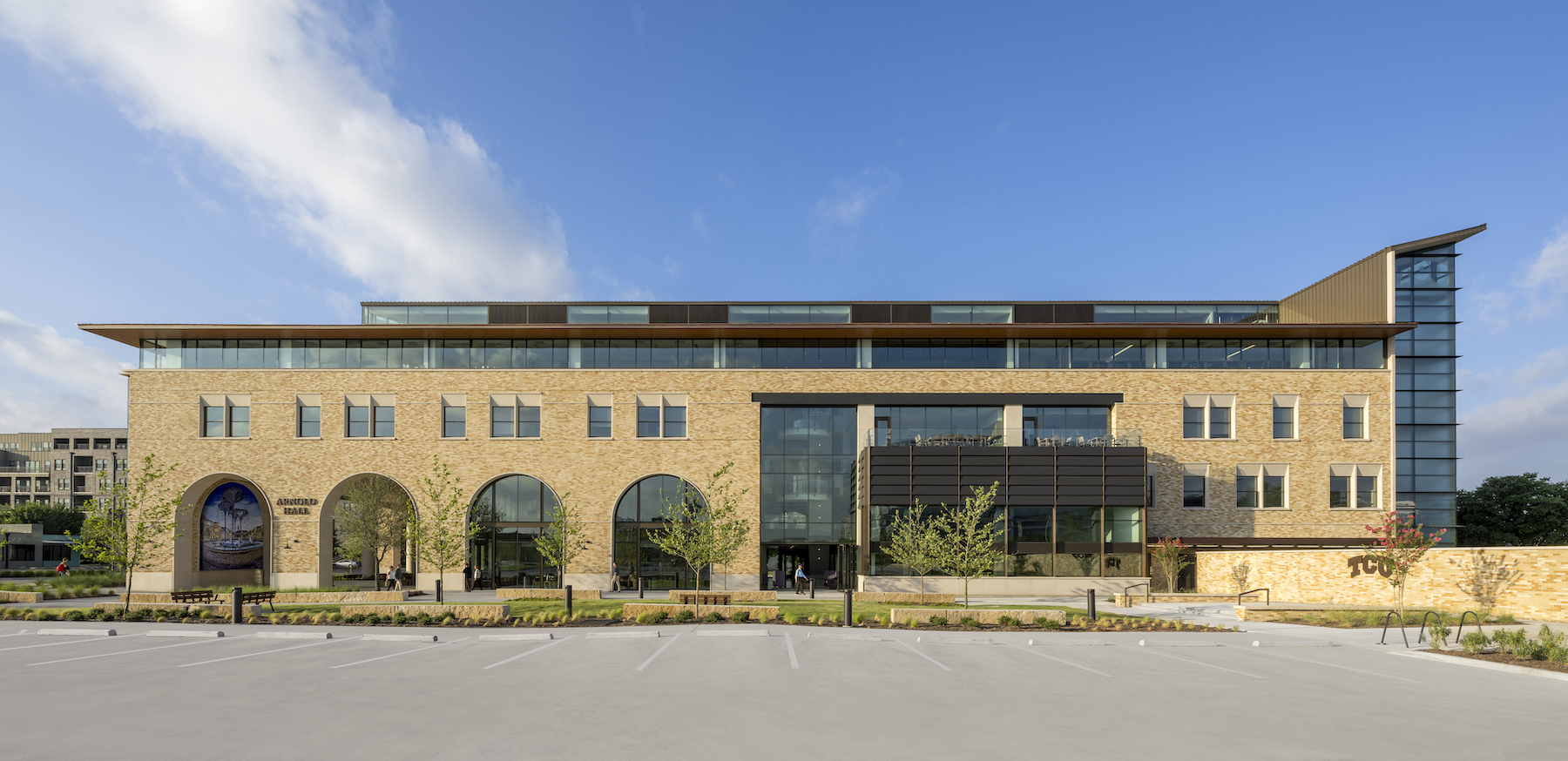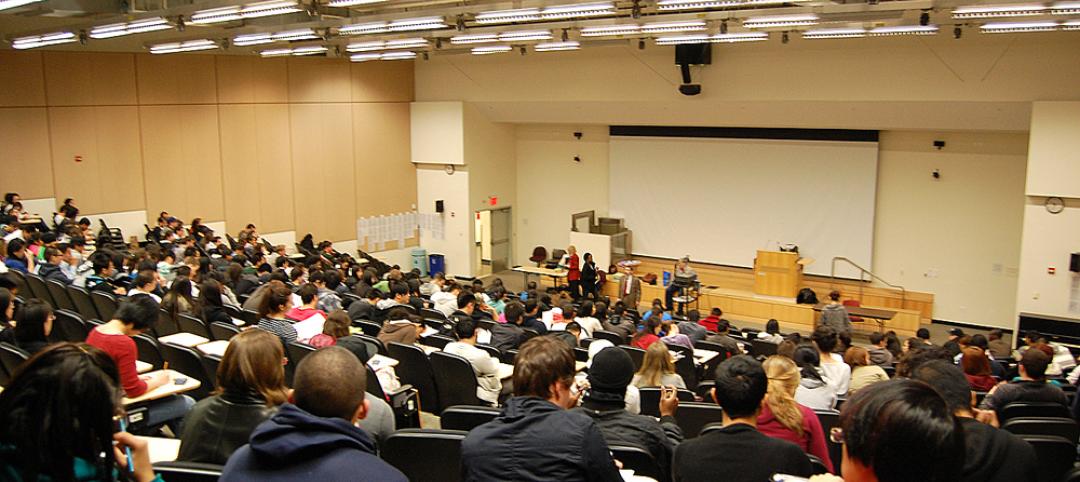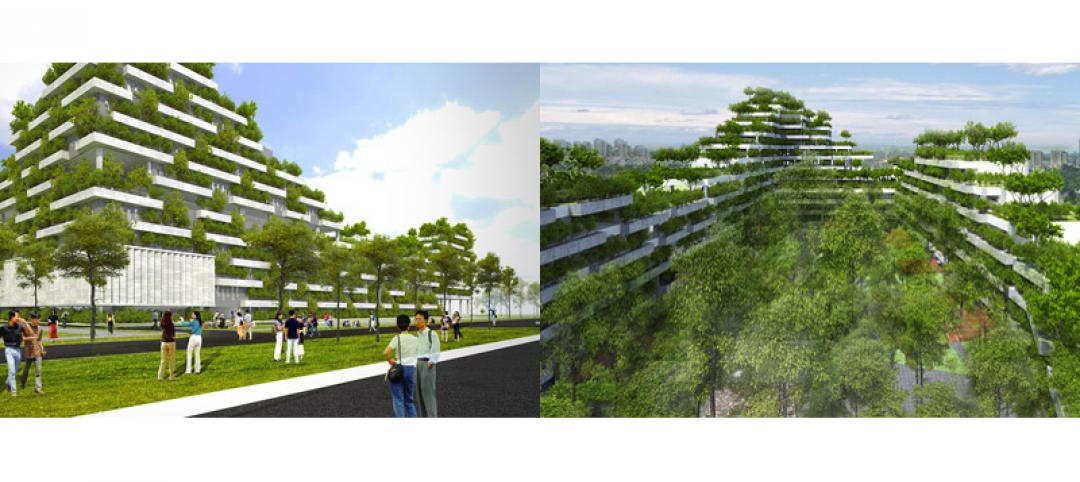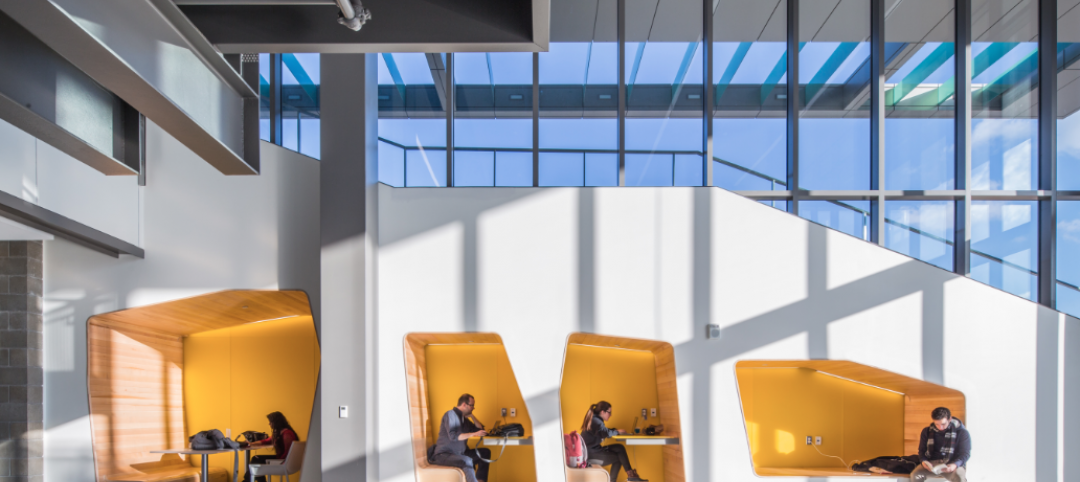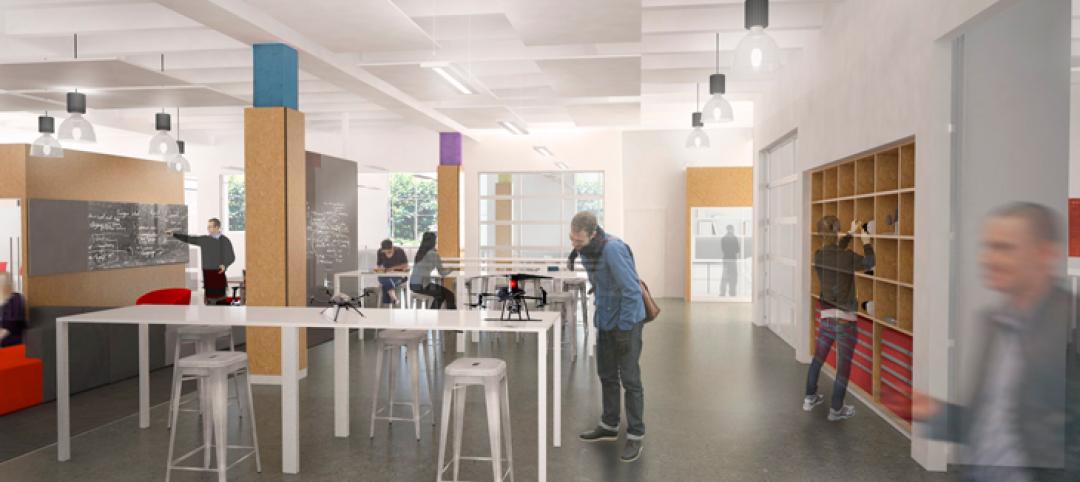Texas Christian University today officially completed its opening of Arnold Hall, a 95,000-sf, four-story home to the institution’s Anne Burnett Marion School of Medicine.
Arnold Hall marks TCU’s first major off-campus development, and initiates future growth for the university’s downtown Fort Worth location. The project team—which included the architects CO Architects and Hoefer Welker, and the general contractor Linbeck—collaborated with the city of Fort Worth to select and establish the location near urban medical districts and Near Southside, an urban mixed-use community, to build a bioscience sector.
The new medical school sits less than a mile from Baylor Scott & White All Saints Medical Center–Fort Worth, Cook Children’s Medical Center, Medical City Fort Worth, and Texas Health Harris Methodist Hospital.
Construction of Arnold Hall—which had been in the works for a decade—was completed in July. The project was Plan B, after TCU and the University of North Texas Health Center couldn’t reach agreement for building under a private-public partnership. (The two parties split in January 2022, according to KERANews.)
Arnold Hall serves as an academic hub for 240 medical students annually, and nearly 150 faculty and staff. TCU administrators have estimated that the Burnett School of Medicine will create 31,200 jobs and have annual economic impact of $4 billion by 2030.
Future-ready facility
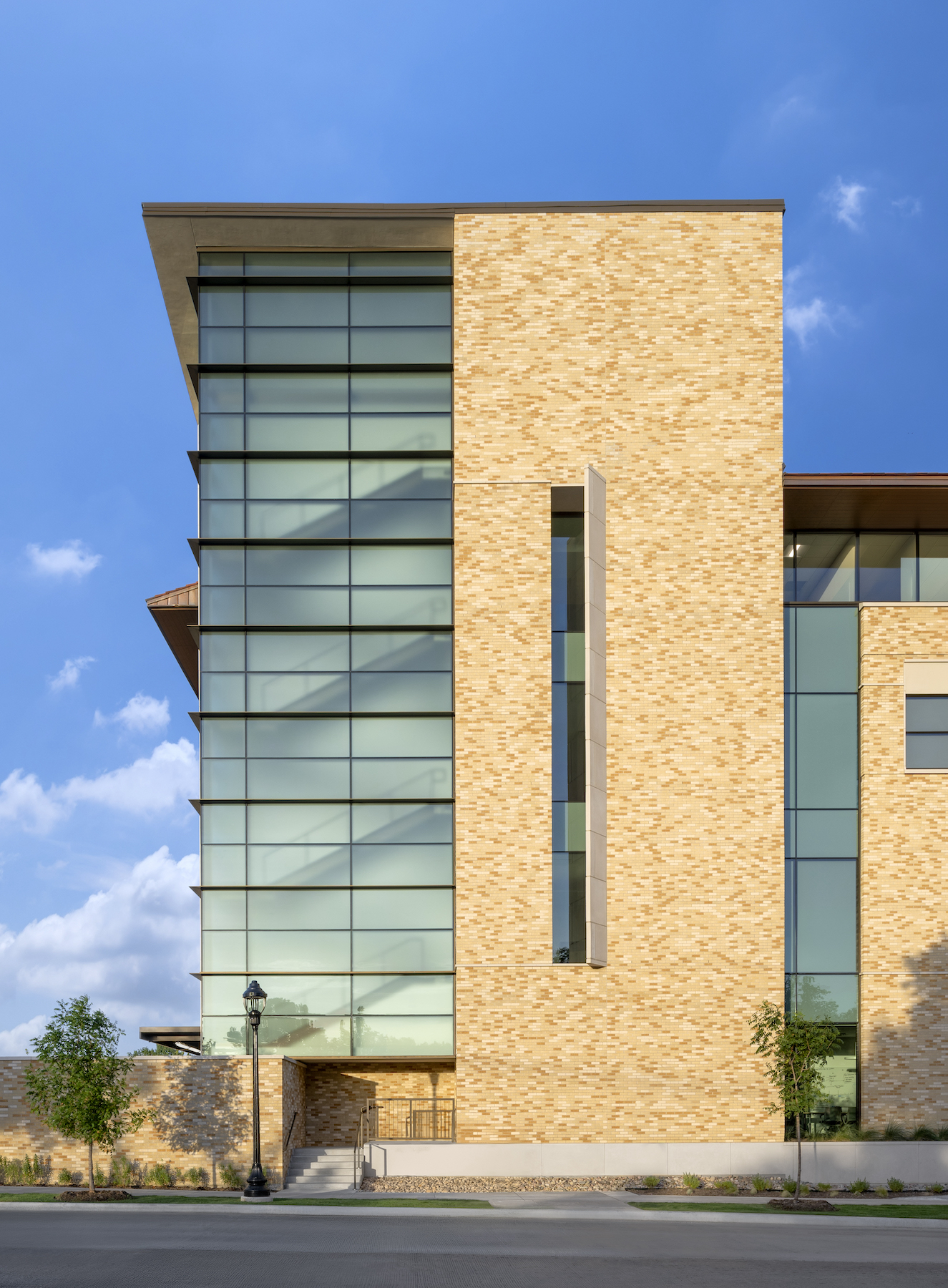
The new $62 million facility encourages collaboration via a commons area, library, classrooms, faculty offices and suites. Its third floor houses anatomy and experimental labs with AR and VR technologies. Students also have access to high-fidelity human mannikins in a medical simulation suite, where they can practice team-based care.
In the building’s clinical rooms, students hone their communications and diagnostic skills with patient-actors. And TCU’s curricula allow students to partner with physicians on their first day of medical school to identify drivers in the future of medicine that include artificial intelligence, genomics, and using technology to monitor patient health and diseases.
The Arnold Hall “communicates TCU’s commitment to creating dynamic state-of-the-art facilities for next-generation medical education,” said Stuart D. Flynn, MD, founding dean of the Burnett School of Medicine, in a prepared statement. Jonathan Kanda, FAIA, Principal with CO Architects, added that the goal of Arnold Hall is to create a school that is capable of “accommodating future technological and pedagogical advances in medical education.”
Related Stories
University Buildings | Oct 16, 2015
Competency-based learning: A glimpse into the future of higher education?
For better or worse, the higher education experience for many young Millennials and Gen Zers will not resemble the four-year, life-altering experience that we enjoyed—it’s just too costly.
University Buildings | Sep 21, 2015
Vietnamese university to turn campus into ‘terraced forest’
Pockets of plantings will be dispersed throughout the staggered floors of the building, framing the expansive courtyard at its center.
University Buildings | Sep 21, 2015
6 lessons in campus planning
For campus planning, focus typically falls on repairing the bricks and mortar without consideration of program priorities. Gensler's Pamela Delphenich offers helpful tips and advice.
Mixed-Use | Aug 26, 2015
Innovation districts + tech clusters: How the ‘open innovation’ era is revitalizing urban cores
In the race for highly coveted tech companies and startups, cities, institutions, and developers are teaming to form innovation hot pockets.
University Buildings | Aug 13, 2015
Best of Education Design: 9 projects named AIA Education Facility Design Award winners
Georgia Tech's Clough Commons, Boston's Berklee Tower, and seven other facilities were honored for aiding learning and demonstrating excellent architectural design.
Giants 400 | Aug 7, 2015
UNIVERSITY SECTOR GIANTS: Collaboration, creativity, technology—hallmarks of today’s campus facilities
At a time when competition for the cream of the student/faculty crop is intensifying, colleges and universities must recognize that students and parents are coming to expect an education environment that foments collaboration, according to BD+C's 2015 Giants 300 report.
Contractors | Jul 29, 2015
Consensus Construction Forecast: Double-digit growth expected for commercial sector in 2015, 2016
Despite the adverse weather conditions that curtailed design and construction activity in the first quarter of the year, the overall construction market has performed extremely well to date, according to AIA's latest Consensus Construction Forecast.
University Buildings | Jul 28, 2015
OMA designs terraced sports center for UK's Brighton College
Designs for what will be the biggest construction project in the school’s 170-year history feature a rectangular building at the edge of the school’s playing field. A running track is planned for the building’s roof, while sports facilities will be kept underneath.
University Buildings | Jul 21, 2015
Maker spaces: Designing places to test, break, and rebuild
Gensler's Kenneth Fisher and Keller Roughton highlight recent maker space projects at MIT and the University of Nebraska that provide just the right mix of equipment, tools, spaces, and disciplines to spark innovation.
University Buildings | Jul 2, 2015
Design for new pavilion in Toronto includes a ‘peel-away’ façade
An architect's proposal for a renovation of the main office building at the Ontario College of Art and Design features a façade that fans out from the edges of the building, like it’s opening up to visitors.


